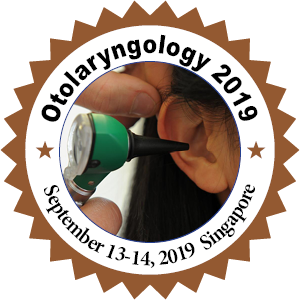
Sonali Malhotra
Lady Hardinge Medical College, India
Title: Role of transtympanic myringoplasty in modern otology
Biography
Biography: Sonali Malhotra
Abstract
Objective: This study evaluates the success rate of transtympanic myringoplasty and defines its role in the current era.
Method: The technique was carried out in 25 adult patients with chronic suppurative otitis media-mucosal disease under local anesthesia on the basis of day surgery.
Main Outcome Measures: An intact graft at the end of the third month was considered a success. A 10 dB hearing improvement in two consecutive frequencies in the range of 500,1000, 2000, and 3000 Hz was regarded as an audiologic success. Furthermore, the patient's perforations were divided into anterior, inferior, and posterior and the success rate was evaluated in each subgroup. Perforations were also classified into small and medium on the basis of surface area and evaluated statistically on the basis of the Fisher exact test.
Results: An overall success rate of 84% and 71.5% was recorded in terms of perforation closure and hearing improvement. Statistically, the surface area of the perforation did not influence the outcome of the result, but anteriorly placed perforations showed a poor graft uptake.
Conclusion: From the results herein, we find the technique to be convenient, highly cost-effective, time saving, and patient friendly, with closure rates comparable to other standard techniques of myringoplasty.

